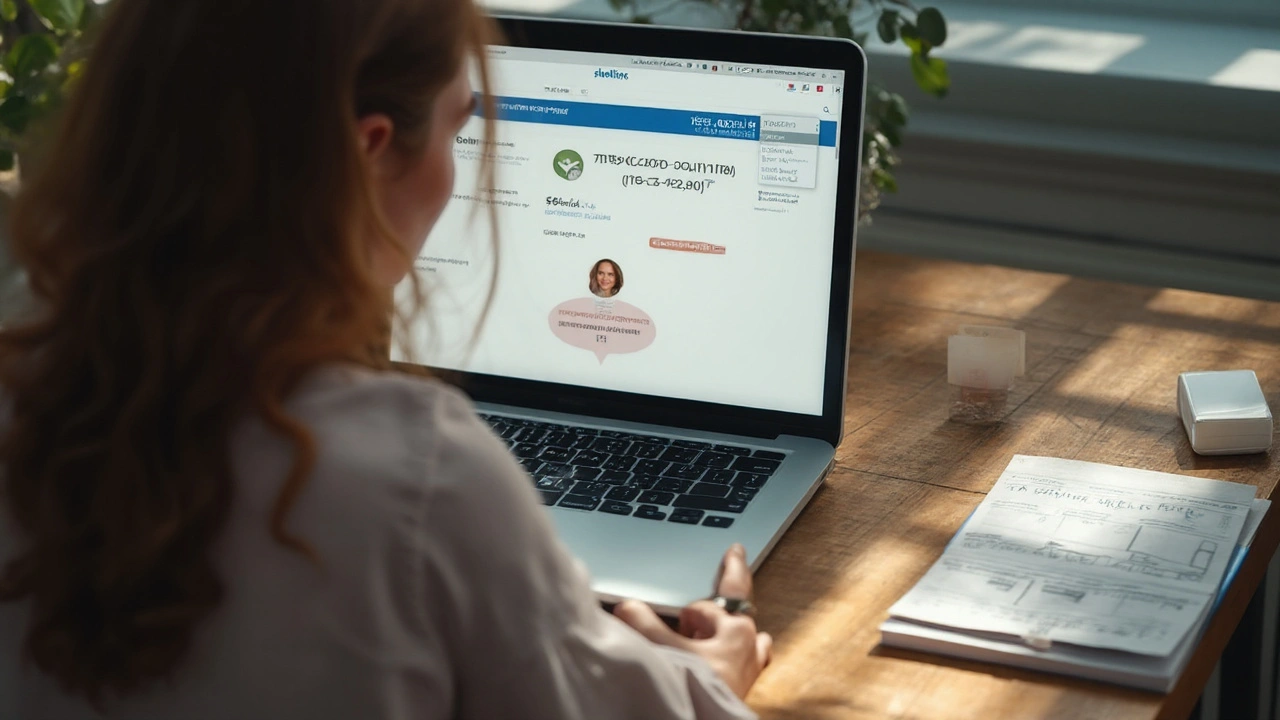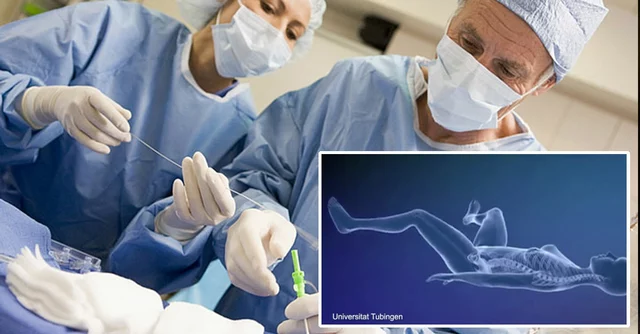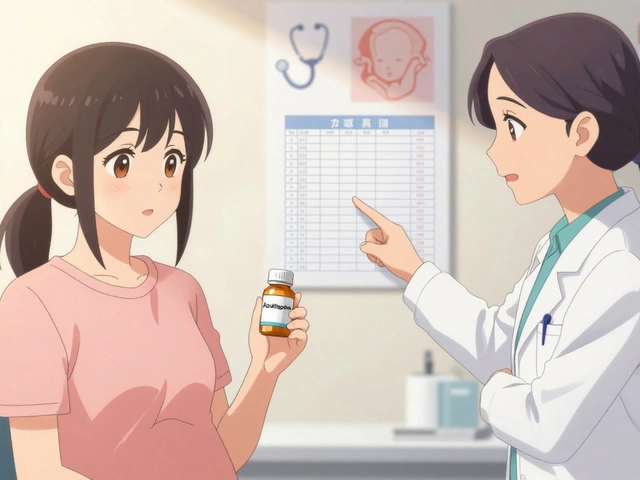If a website lets you check out isotretinoin with no prescription, close the tab. That’s how people get burned-bad pills, zero medical oversight, and parcels that never show. If you came here to buy generic accutane online for cheap, the short answer is yes, you can do it-legally and safely-through a UK-registered online pharmacy or teledermatology service that prescribes after a proper assessment. You won’t dodge the medical checks. You can still trim your costs and get fast delivery. Here’s exactly how it works in 2025, what you’ll pay, and the traps to avoid.
What You Can Realistically Do Today (and What You Can’t)
Let’s set expectations. Isotretinoin (often known by the old brand name Accutane or Roaccutane) is prescription-only in the UK and tightly controlled. Why? It’s highly effective for severe acne, but it has serious risks. That means any legit online route will involve a clinician reviewing your case before a prescription lands at a registered pharmacy. If a site says “no prescription needed,” it’s either illegal, unsafe, or both.
Here’s the safe, legal path in the UK:
- Start with a proper consultation. You can use NHS dermatology via referral (cheap, slower) or private teledermatology/online clinics (faster, costs more up front).
- Expect mandatory safety steps. For anyone who could become pregnant, UK doctors must follow a pregnancy prevention programme with monthly tests and reliable contraception. All patients will have baseline blood tests (liver enzymes, lipids) and periodic repeats.
- Get an electronic prescription sent to a UK-registered online pharmacy. They’ll dispense a named generic isotretinoin made by a licenced manufacturer.
- Home delivery is standard across reputable providers. Next‑day options are common after the pharmacy checks are done.
What you cannot do safely or legally:
- Import “generic Accutane” from overseas sellers without a UK prescription. Border seizures happen, and the quality risk is real.
- Use sites that auto-approve without real clinical questions, bloods, or identity checks. That’s a red flag for both safety and legality.
- Skip contraception and pregnancy tests if you can become pregnant. UK regulators and prescribers are strict here for a reason.
Regulatory quick hits, 2025 UK context:
- MHRA and the General Pharmaceutical Council (GPhC) oversee pharmacy and online supply. Check the pharmacy’s GPhC registration and the MHRA distance-selling logo on the site.
- NICE acne guidelines say isotretinoin is for severe acne that failed standard treatments. That’s why your prescriber will ask what you’ve already tried.
- In the UK, prescribing is typically under a dermatologist or a service working to specialist protocols. Under‑18s have extra safeguards.
No shortcuts-just a smarter way to move quickly and keep costs in check.
Prices, Doses, and How to Pay Less in the UK (2025)
Let’s talk money. The drug itself isn’t wildly expensive when you buy a UK generic; the bigger costs are the consultation and blood tests. That said, prices vary a lot between pharmacies and strengths (10 mg, 20 mg, 40 mg). The ranges below reflect typical private cash prices I hear consistently across Manchester and other large UK cities in 2025.
Typical private UK price heuristics:
- Per-capsule price (10-20 mg): roughly £0.60-£1.20.
- Monthly cost depends on your dose (often 0.5-1 mg/kg/day). For a 60 kg person, that’s 30-60 mg/day.
- Brand names like Roaccutane cost more. Ask for a licensed generic.
| Daily dose | Typical monthly quantity | Estimated private UK price range (med only) | Notes |
|---|---|---|---|
| 20 mg/day | 30 × 20 mg | £18-£35 | Lower dose; sometimes used to start or for smaller body weight. |
| 30 mg/day | 30 × 20 mg + 30 × 10 mg | £30-£60 | Common mid-range dose; mix strengths to hit 30 mg. |
| 40 mg/day | 60 × 20 mg (or 30 × 40 mg if stocked) | £36-£72 | Many pharmacies carry 20 mg more reliably than 40 mg. |
| 60 mg/day | 90 × 20 mg | £54-£108 | Higher dose for larger body weight or severe disease. |
| Consultation + bloods | Initial and periodic | Consult: £60-£200; Bloods: £30-£80 per set | Private telederm can be fast; NHS is cheaper but slower. |
| NHS route (England) | Standard script charge | £9.90 per item | As of 2025; medication cost itself is not paid by patient. |
How to reduce your total cost without cutting corners:
- Use a UK-registered teledermatology service that bundles tests. Packages that include initial consult + baseline bloods can be cheaper than buying each piece separately.
- Ask for generic by name and check manufacturer. UK generics from licensed manufacturers (for example, Accord, Actavis, Teva) are fine. Don’t pay brand premiums.
- Compare at least three GPhC-registered online pharmacies. Email or chat to request written quotes for your exact dose and 30-day supply. Prices vary more than you’d expect.
- Stick to common strengths to avoid stock markups. Pharmacies often price 10 mg and 20 mg best. Mixing 10 mg + 20 mg is usually cheaper and easier to find than 40 mg.
- Get a 56‑day script if appropriate. Some prescribers are comfortable with two months per issue after the first month is stable. Two months can reduce delivery and dispense fees. Your prescriber decides based on safety.
- Use NHS where it fits your timeline. If you can wait for a dermatology appointment, your out-of-pocket often drops to the standard prescription charge in England. In Scotland, Wales, and Northern Ireland, prescription charges are different or not applied.
- Don’t overbuy early. Doses can change after the first month. Buying three months up front only to adjust the dose is wasted money.
Time expectations: With private telemedicine, I often see a completed assessment, baseline bloods, and first delivery within 3-10 days if you move quickly. NHS routes can take weeks to months depending on local waits, but cost less.

Safety Rules You Can’t Skip (Risks, Tests, Contraception)
Isotretinoin is a serious medication. Taken correctly, it can clear severe acne for good. Taken casually, it can go wrong fast. This is the non-negotiable safety stuff UK clinicians follow-because it protects you.
Major risks you should know about, straight and simple:
- Pregnancy risk: Isotretinoin causes severe birth defects. If you could become pregnant, you’ll be enrolled in a pregnancy prevention programme, use reliable contraception, and do regular pregnancy tests. No exceptions.
- Mood and mental health: A small number of people report mood changes, anxiety, or depression. The MHRA strengthened warnings in recent years. If your mood shifts, stop and call your prescriber immediately.
- Liver and lipids: It can raise liver enzymes and blood fats. That’s why baseline and follow-up blood tests exist.
- Skin and eyes: Dry lips, dry skin, nosebleeds, and dry eyes are common. Sunscreen is your friend. Contact lens wear can get uncomfortable.
- Muscles and joints: Aches can happen, especially at higher doses or with heavy workouts.
Do-not-mix list and lifestyle tweaks:
- Avoid vitamin A supplements. Isotretinoin is a retinoid; adding vitamin A increases toxicity.
- Avoid tetracycline antibiotics (like doxycycline) at the same time. The combo can raise intracranial pressure-dangerous.
- Go gentle on alcohol. It can affect your liver and lipids; your prescriber will advise based on your results.
- Pause waxing, dermabrasion, and strong peels during and for several months after treatment to prevent skin damage.
Practical comfort tips that actually help:
- Stock lip balm with petrolatum or lanolin, a bland face moisturiser, and artificial tears if you get dry eyes. Keep them with you.
- Use a simple SPF 30-50 every morning. Reapply if you’re outdoors.
- Switch to a mild, non-foaming cleanser. Skip exfoliants and scrubs.
- Keep workouts, but watch joint pain and dial intensity down if needed.
When to stop and call the prescriber right away:
- Mood changes, suicidal thoughts, or new severe anxiety.
- Severe headache with vision changes, vomiting, or dizziness.
- Yellowing of skin/eyes, severe abdominal pain, or dark urine.
- Unexplained severe muscle pain or weakness.
If you’re shopping online and a site downplays or ignores these risks, that’s your cue to leave. Responsible services follow NICE guidance, MHRA safety updates, and GPhC standards. They’ll ask the “boring” questions because they matter.
Legit Online Sources vs Red Flags, and What to Do If Isotretinoin Isn’t Right
Buying medication online in the UK is safe when you stick to services that are actually allowed to do it. Here’s how I vet a site before I hand over money or medical info.
Green flags (proceed):
- The pharmacy displays a GPhC registration number and lists the superintendent pharmacist by name. You can look up the registration on the GPhC online register.
- The site uses the MHRA’s distance-selling logo and explains how prescriptions are checked.
- You’re asked for ID, a medical questionnaire, and proof of recent blood tests or offered a pathway to get them.
- The service makes contraception and pregnancy testing requirements crystal clear if relevant.
- They can name the exact licensed generic manufacturer they’ll dispense and will email an itemised quote on request.
Red flags (close the tab):
- “No prescription needed.” Illegal for isotretinoin in the UK.
- They ship from outside the UK without a UK prescription. High chance of seizure or counterfeit meds.
- Prices that seem too good to be true (for example, £10 for a month of 60 mg/day). Counterfeits often look like bargains.
- No clinical questions, no blood tests mentioned, no contraception discussion. That’s not a real prescribing process.
- No physical address in the UK, no registered pharmacist details, and no customer support beyond a throwaway email.
If isotretinoin isn’t right for you-or you’re not ready for the safety commitments-there are proven alternatives. NICE lists these options, and a good prescriber will usually try them before isotretinoin anyway:
- Topicals: Adapalene 0.1% + benzoyl peroxide 2.5% is a solid first-line combo. It targets clogged pores and bacteria and is available in the UK. Expect 8-12 weeks to judge results.
- Oral antibiotics: Lymecycline or doxycycline for 3-4 months with a benzoyl peroxide topical to reduce resistance. Not a long-term fix, but can calm inflammatory acne.
- Hormonal therapy: For many women, combined oral contraceptives or spironolactone cut oil production and inflammation. These can be game-changers without isotretinoin’s strict pregnancy rules (though contraception requirements differ).
- Skincare basics that matter: Daily non-comedogenic moisturiser, benzoyl peroxide wash a few times a week, and avoiding heavy occlusive products. Simple, boring, effective.
Common follow-up questions people have at this point:
Can I use NHS for the prescription and still get it delivered? Yes. Many bricks-and-clicks UK pharmacies will collect your NHS script electronically and post the medicine. You’ll usually pay the standard charge in England.
How fast can I start privately? If you can get bloods done the same week, many people start within 3-10 days after a telederm consult. Delays often happen when lab results or pregnancy tests aren’t uploaded promptly.
Is the cheap generic “weaker” than Roaccutane? No. Licensed UK generics must meet the same standards for quality, strength, and bioequivalence. Differences you might notice are fillers or capsule size, not effectiveness.
Can I split capsules to save money? Don’t. These are softgels with oil-based contents. Your prescriber will help you reach the right dose using available strengths.
Will I relapse after one course? Many people get long-term remission after reaching the usual cumulative dose target (your clinician will calculate this). Some need a second course months or years later. Keeping a steady skincare routine helps reduce relapse.
What if I have a history of depression? Tell your prescriber. It doesn’t always rule isotretinoin out, but it changes how you’re monitored and how quickly the dose is increased. Involve your GP or mental health team from the start.
Next steps based on where you’re at:
- If you’ve never tried guideline-based topicals: Give adapalene + benzoyl peroxide a proper 8-12 week run. It’s cheap and often works.
- If you’ve failed topicals and a proper antibiotic course: Book a telederm consult that clearly states they prescribe isotretinoin and arrange bloods.
- If money is tight but you can wait: Ask your GP for an NHS dermatology referral today. Put your name down and keep the paperwork moving.
- If you’re ready to start now: Get baseline blood tests this week through the telederm service or a local lab, upload results same day, and request a 30‑day script with common strengths (10 mg + 20 mg) to avoid stock delays.
Troubleshooting common hiccups:
- Pharmacy out of stock of 40 mg: Ask for two strengths (20 mg + 20 mg) or 10 mg + 30 mg equivalent dosing. Most UK pharmacies keep 10 mg and 20 mg on hand.
- Bloods slightly abnormal: Your prescriber might tweak dose, repeat tests, or advise lifestyle changes. Don’t reorder until you get the green light.
- Severe dryness despite moisturiser: Reduce dose temporarily with your prescriber’s approval and upgrade to a thicker ointment at night.
- Delivery delays: Choose tracked delivery and order 7-10 days before you run out. Ask the pharmacy to message you when they dispatch.
Ethical, clear call to action: pick a UK-registered teledermatology provider that follows NICE and MHRA guidance, get your baseline tests this week, and ask for quotes from three GPhC-registered online pharmacies for your exact monthly dose. You’ll end up with legal supply, genuine medication, and a fair price-without gambling with your health.





Comments (18)